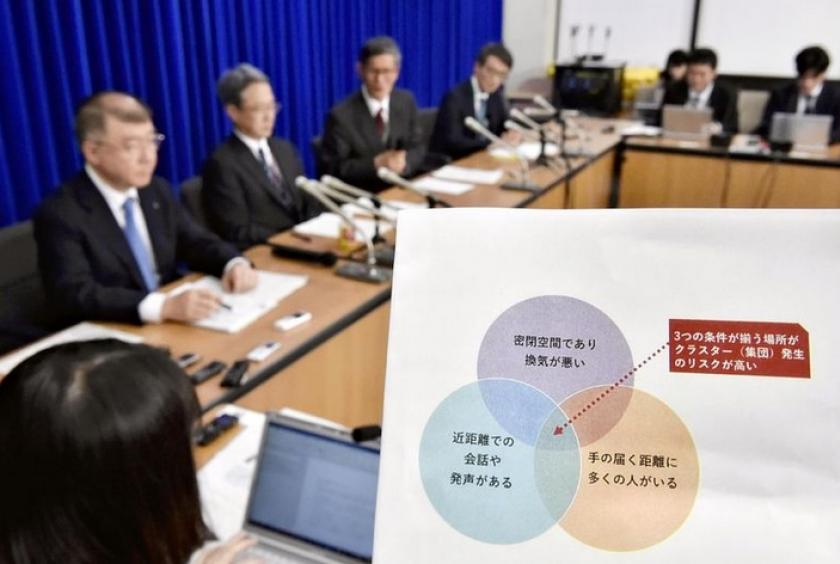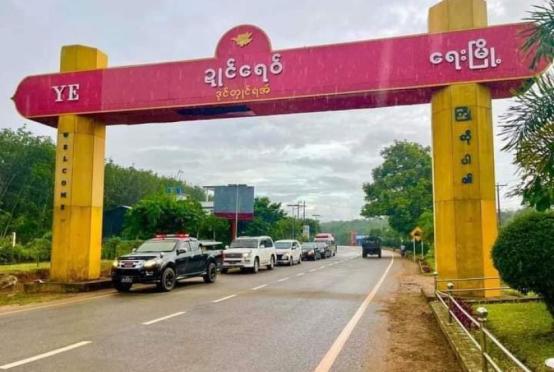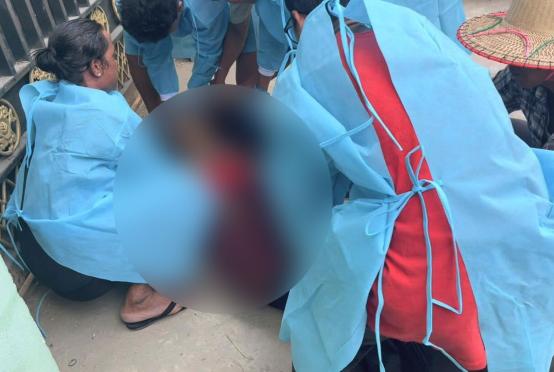
The Yomiuri Shimbun/ANN - Since the state of emergency was declared, the Japanese government has set a goal for people to reduce contact with others by at least 70% while making every effort to achieve an 80% target.
This strategy aims to end the crisis over a short period of one month and is based on estimates by Hiroshi Nishiura, a professor at Hokkaido University who specializes in theoretical epidemiology and is a member of the Health, Labor and Welfare Ministry’s task force on cluster infections.
The estimate assumes as the worst-case scenario that the number of people infected with the virus will increase sharply in the same way as in Europe.
According to the estimate, if contact among people is reduced by 80%, the number of infected people will decrease in 15 days and the spread of infections will be brought to an end in about a month. If contact is reduced by 60%, the infections continue to occur at the current pace. If contact is decreased by 70%, it will take two months for the infection to settle.
The estimate assumes that one infected person will infect an average of 2.5 people if no measures are taken, based on the situation in Europe, where the number of infected people and deaths are rapidly increasing.
Meanwhile, experts in the cluster task force reported on Twitter that the infectiousness from one person in Japan was 1.49 people as of Saturday. The increase of infections in Japan is slower than in Europe, with fewer cases and fewer deaths. However, there is no room for optimism, as it may be because the measures for people to refrain from going out have had an effect.
If this one-month period for people to exercise self-restraint from going out is extended due to the failure to reduce contact, the economy and people’s feelings will suffer. The effects of stay-at-home measures are also expected to diminish.
“If it takes two months [to settle], it will be difficult to implement [self-restraint measures],†Nishiura said anxiously.
“For example, to reduce contact between people by 80%, the frequency of outings for commuting and shopping should be reduced from five days a week to once a week,†said Koji Wada, a professor who researches public health at the International University of Health and Welfare. “When you meet and talk to someone, you should have a conversation wearing masks and keep a distance of 2 meters.â€
According to Wada, it’s good to take a walk with your family, but you should go alone to a supermarket or other shops. It is also acceptable to play in a park at an appropriate distance from people, but you should avoid going somewhere with closed spaces, crowded places and close-contact settings. You also should not to dine out with acquaintances.
While it is okay to stay home as usual with your family, Wada added, “careful attention should be paid if you have elderly family members.















